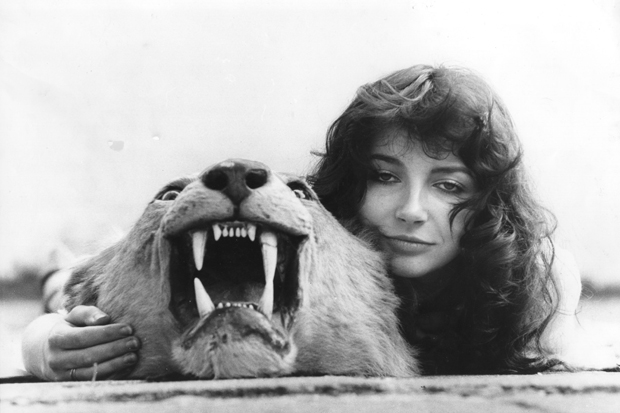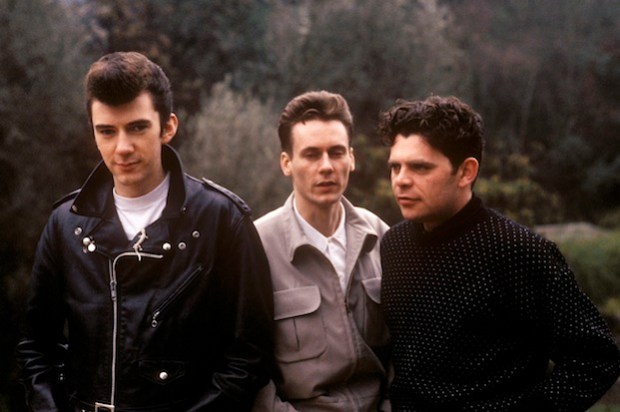It is coming to something when relatively young pop stars die not of drugs or misadventure but, essentially, of old age and decay. Frankie Knuckles, the house DJ and producer, breathed his last recently at the age of just 59, and several ageing ex-clubbers of my acquaintance told me that it was the end of an era. But it always seems to be the end of an era these days, and very rarely the beginning of one. We read that the New Musical Express, that inky irritant to generations of music lovers who bought it every week even if they disagreed with every word it printed, now sells about three copies a week and is in danger of going under. Indeed, if it weren’t for the annual NME awards, which have become a useful counterpoint to the ghastly Brits, IPC would probably have pulled the plug a while ago. The awards make money; it’s just the magazine that no one has any use for. What do the pop kids read now? Isn’t reading about music nearly as central to the experience as listening to it?
Well, it always has been for me. (Writing about it and bickering about it come third and fourth.) As it happens, last week I read a deeply strange book, The KLF: Chaos, Magic and the Band who Burned a Million Pounds, by a man called John Higgs, who among other things has directed more than 100 episodes of animated pre-school television. (I mention this only because I have yet to meet an animator who wasn’t, at best, eccentric down to cellular level.) His book is gloriously ambitious, trying to place the KLF — Bill Drummond and Jimmy Cauty — and their brief pop career within an overarching cultural framework that embraces Thatcherism, chaos theory, surrealist art, 1960s counter-culture, the relentless commercialism of the record industry and the wilful contrarianism of the two musicians themselves.
But Higgs knows as well as anyone that the world will remember the duo for just two things. One is their best song, the magnificent 1991 hit ‘Justified & Ancient’, on which they somehow persuaded Tammy Wynette to sing the lines ‘They’re justified/And they’re ancient/And they drive an ice-cream van.’ The other is that, in 1994, Drummond and Cauty deleted all their own records, announced they were leaving the music industry and went to a deserted boathouse on Jura, where they burned a million pounds in cash.
Higgs has to admit that he doesn’t know why they did it, but then they don’t know why they did it, either. They just felt they had to, and Higgs thinks neither of them has ever quite recovered from the experience. As I weep over my computer keyboard, imagining what I could do with just a fraction of that sum, I can sort of sympathise, while wanting to dunk their screaming bodies in boiling oil like everyone else.
But did Drummond and Cauty sniff something in the air? Higgs believes so. Music in the 20th century, he says, showed a remarkable capacity for invention. ‘New musical genres were constantly created and explored — so much so, in fact, that this was considered normal.’ Blues, jazz and Stravinsky in the first half of the century, rock ’n’ roll in the 1950s, the Beatles, Motown and psychedelia in the 1960s, and so on through the 1970s and 1980s, with punk, disco, hip-hop and acid house each sweeping aside everything that had gone before and taking the territory for its own. In 1994, when Drummond and Cauty built their bonfire, we were waiting to see what the next big thing would be. We are still waiting. People go on making good music, ‘but the idea that there are major new continents of unexplored music has slowly faded’. The frontier has been colonised, says Higgs. We have discovered the edges of the territory.
This is a powerful idea, and I’m not sure I have seen it put in this way before. But it strikes me as absolutely correct. Without our realising it, pop has become a conservative medium. People like Mumford & Sons are designing music that has the equivalent of Palladian arches. Radio 1, for all its efforts to ‘freshen’ the brand, is still listened to by people in their thirties. The NME is unread and Frankie Knuckles’s death is on the front page of the Guardian. Pop really has become an old man’s game. It’s justified, and it’s ancient, and it drives an ice-cream van.
Got something to add? Join the discussion and comment below.
Get 10 issues for just $10
Subscribe to The Spectator Australia today for the next 10 magazine issues, plus full online access, for just $10.
You might disagree with half of it, but you’ll enjoy reading all of it. Try your first month for free, then just $2 a week for the remainder of your first year.














Comments
Don't miss out
Join the conversation with other Spectator Australia readers. Subscribe to leave a comment.
SUBSCRIBEAlready a subscriber? Log in